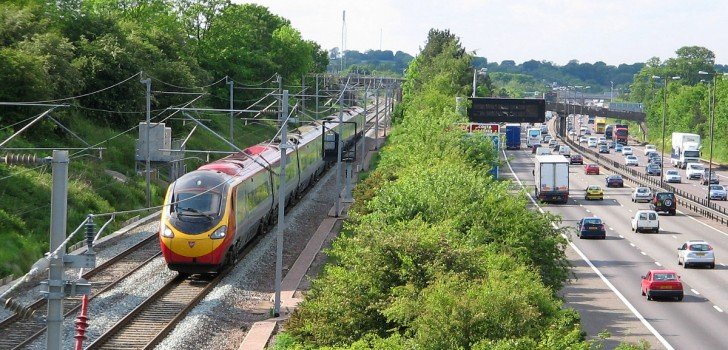The United Kingdom, through the group Highways England, is developing technology that will charge electric vehicles as they are driven across the country’s highways. The group plans to test the technology on nonpublic roads in order to tweak the design and to ensure it actually works. In the near future, electric vehicle drivers may not have to worry about running out of charge on long road trips.
After testing several approaches, Highways England has identified systems that work and are manufacture-ready. The technology works by a process known as Shaped Magnetic Field in Resonance. Basically, the technology system contains power lines connected to metal coils under the road’s surface, which then transmit the generated electricity through the air to a receiver coil in the vehicle. By driving down the stretch of highway in a compatible electric or hybrid vehicle, its battery will be charged on the fly.
As announced by Highways England, the power transfer could likely work with all vehicle types. Since the technology is placed under the surface of the road, the building of structures above ground is unnecessary, an important factor in avoiding possible collisions or electric shocks. The wireless system is less obtrusive than the overhead cables currently used for city trolleys and trains.
Transport Minister Andrew Jones says the U.K. government is committed to spend approximately $780 over the next five years in order to develop rechargeable low-emission vehicles and related technology, aiming to “keep Britain at the forefront of this technology. . . The potential to recharge low emission vehicles on the move offers exciting possibilities. As this study shows, we continue to explore options on how to improve journeys and make low-emission vehicles accessible to families and businesses.”
As part of this initiative, the off-road trials will begin later in 2015 and continue for 18 months while the government works on cost and feasibility studies of bringing it to the country’s main roads. Britain is very excited about the technology and hopes it transforms England’s existing “brutal, crass and ugly” highway system into something “beautiful and award-winning,” according to transport minister John Hayes. He further articulated that, “We want roads to be based upon principles of good design. From maintaining the right proportions in construction to use of street lighting, signage and other roads ‘furniture’ and from delivering better air quality and biodiversity.”
Stay Connected